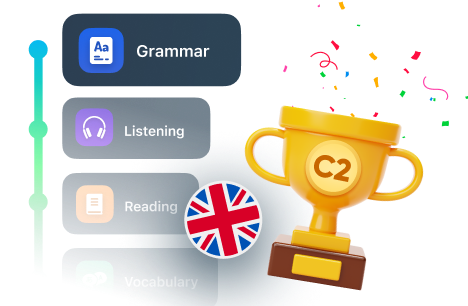
How Long Does It Take to Learn Greek From Beginner to Fluent?
Let’s see what may influence your language-learning journey and how you can use this knowledge for your own good.
Let’s say you have decided to learn Greek. Whether you want to be ready for your traveling experience, you are taking up a new job, or you are an avid language learner, learning a new language can be both exciting and intimidating. However, it is quite normal to wonder how long it takes to learn modern Greek.
The answer to that question is a multifaceted one. There are many different factors to consider when calculating how much time it will take to learn Greek. Contrary to popular belief, the calculation cannot be made based on the desired level of fluency alone. It is mostly learner-dependent and is based on the factors which will be discussed below.
That said, it shouldn’t deter you from trying to pursue your language-learning goal. Let’s see what may influence your language-learning journey and how you can use this knowledge for your own good.
How long does it take to learn modern Greek: factors
Modern Greek, while being a fascinating language, might be tricky to learn, especially for native English speakers. It requires determination, practice, and quite some time trying to achieve a level where you can be confident in your knowledge. Let’s review the possible factors that answer the question of how long it takes to learn Greek.
Native language of a learner 🗣️
Greek is considered by many a difficult language—we have all heard of the phrase “It’s all Greek to me.” However, the science of Linguistics has busted that myth. There are no difficult or easy languages. It all depends on the grammar, alphabet, and structure of the native language each one of us speaks. Thus, the answer to the question “How long does it take English speakers to learn Greek?” might be different than the answer to “How long does it take Yoruba or Thai speakers to learn Greek?”.
Learning style 🧑🏽💻
The time needed to learn a language is influenced by your learning style. It might take you significantly longer to learn Greek pronunciation if you are just doing reading exercises, or it might take a while to master Greek grammar if you are only focusing on everyday communication. In that case, a tutor can help a lot with balancing all the different aspects of the language. On LiveXP, for instance, you can benefit by taking lessons from native speakers and seasoned tutors. With organized, 1-on-1 learning, where the tutor is paying attention to your specific needs, LiveXP will greatly help you reduce the time needed to learn Greek.
Motivation for learning 🎯
Motivation is a very important factor in learning a language—much more than anticipated. Actually, motivation is what makes you push through the challenges, while lack of it may leave you disinterested and even lead you to abandon the effort of learning Greek. When a learner is motivated, it is more possible to practice with consistency and seek every opportunity for immersion, from pursuing passive learning through watching Greek movies to talking with natives.
Access to resources 📚
A factor that has not been discussed and mentioned much is the learner’s access to resources. Resources such as textbooks, interactive exercises, and online or in-person lessons are all important in learning a new language. LiveXP offers a wide selection of resources, from online Cypriot and Greek tutors to blog posts that provide insight on how to learn a language and features that help you memorize words and information from the lesson. All in all, access to a wide variety of resources guarantees better chances of learning Greek fast.
Consistency in studying 🗓️
Having the resources is not enough—what matters is that you use them correctly and consistently. The best way to achieve that is, of course, through lessons with a tutor who will help you follow a rigid studying schedule. However, consistency can also be achieved when studying alone. The key is to set achievable goals, like studying for half an hour a day, rather than something that you will not be able to follow.
If you can study for a while each day while also being in touch with the language in other ways (such as watching movies or listening to music), then the results will be evident in a short amount of time. Also, practicing with tools like LiveXP’s Word Trainer will help you learn and retain vocabulary more easily.
Level of fluency you wish to achieve 📈
Depending on the level of fluency you wish to achieve, the time needed to learn Greek varies greatly. For instance, if you want to learn some basic Greek for an upcoming trip, then a couple of weeks should be enough. On the other hand, if you wish to be proficient in Greek for academic or professional reasons, then it might take you a few good years.
Also, the higher the level you wish to achieve, the more important is to weigh in all the above factors. For instance, having one or multiple live tutors (like you can with a LiveXP subscription) in the palm of your hand can be highly beneficial when you aim to reach higher levels of fluency.
Now that we have reviewed the factors affecting how long to learn Greek, let’s see a rough timeline for achieving each level of fluency.
How long does it take to learn modern Greek: calculator
The hours you need to put into learning Greek depend on all the factors we mentioned above, while one of the most crucial ones is the level of fluency you wish to achieve. According to the CERF guide, you should need:
- 100-120 hours to reach the A2 level;
- 180-250 hours to reach the B2 level;
- More than 500 hours to reach the C1-C2 level.
However, even though this estimate corresponds to real data, it is still a rough estimate. The truth is, depending on the factors above and other factors like whether you are a seasoned learner or how much time you actually have, these hours might vary.
How long to learn the Greek language in terms of months
A better estimate that doesn’t take into account classroom hours—since a traditional classroom might even hinder some learners’ ability to learn—is in terms of months or years. It will take you between 4 months and a year to learn basic Greek and about 2 to 4 years to learn conversational Greek, while proficiency in another language is a lifelong pursuit.
You can also use this calculator, which takes into account multiple factors in calculating how much time you will need to learn Greek.
Let’s conclude how long it will take to learn Greek
To conclude, becoming fluent in Greek, at least at a conversational level, is a goal that is easily achieved with consistency and persistence. By devoting enough time and using the right methods, the ones that work specifically for you, you will be able to carry on a conversation in less than two years. And should you need guidance, LiveXP’s tutors are always here to give you a helping hand in practicing and learning.


















